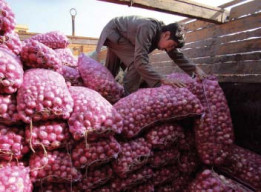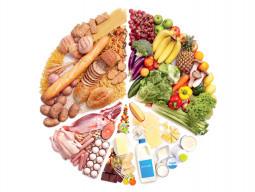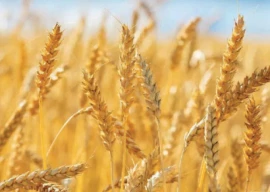
The people of Khyber-Pakhtunkhwa are faced with exorbitant increases in prices of vegetables. Onions become the latest vegetable to cross the Rs100 per kilogramme (kg) mark in certain areas of the city.
Vendors are worried that some commonly used produce will transform into rare commodities given the fall in public demand due to increasing inflation. While tomatoes and potatoes already crossed the Rs100 per kg mark earlier, onions have followed suit.
“In the coming weeks, we fear the price of onions will further rocket and, in all likelihood, become a rare commodity,” said Saeed Khan, a vegetable vendor in Peshawar.

Commenting on the steep rise in potato prices, Khan said during this time of the year potatoes are imported from Afghanistan and a bad harvest in 2013 has made it difficult for the country to meet its own needs, resulting in a decrease in supply to Pakistan.
He said local potatoes are only now arriving in the market, whereas full supply in a month, which should allow the market to stabilise. Due to the increase in prices of potato seeds, some farmers preferred not to cultivate the vegetable, revealed the vegetable dealer.
Vendors believe a bad harvest of onions in Punjab meant that Sindh has become the largest supplier of onions to the rest of the country. Since the cost of petroleum continues to rise, transporting onions to K-P has made the cost go through the roof.
In some markets on Sunday, per kg rates were as follows: tomatoes were selling at Rs120, onions for Rs80, garlic for Rs110, okra for Rs80, cauliflower for Rs60, potatoes were available in the range of Rs80-120, cucumber Rs40, and turnip, which experienced a Rs10 decline, was priced at Rs30.
Khan said district administrations are supposed to issue price lists on a daily basis in addition to keeping a close watch on market prices. However, he added, the administration was now helpless as prices of vegetables also depend on commodity prices in sabzi mandis, which are already very high.
Another reason cited by vegetable growers for the increase in worth is that cold storage centres have increased charges due to correspondingly high utility rates. This is why the growers have to pay extra, to avail the facility of cold storage.
Published in The Express Tribune, November 25th, 2013.






































COMMENTS
Comments are moderated and generally will be posted if they are on-topic and not abusive.
For more information, please see our Comments FAQ